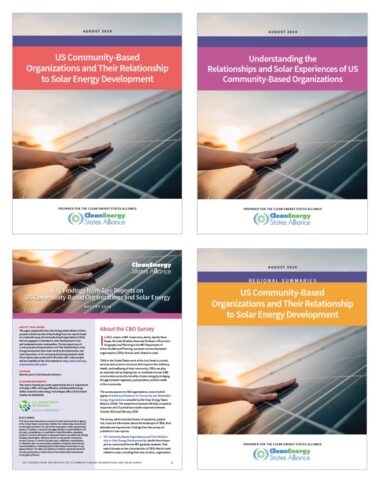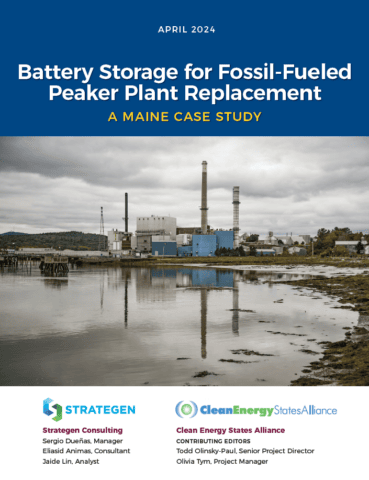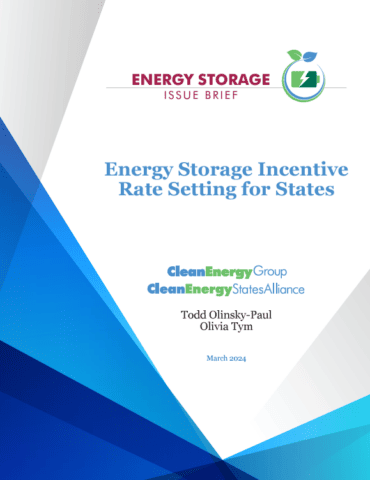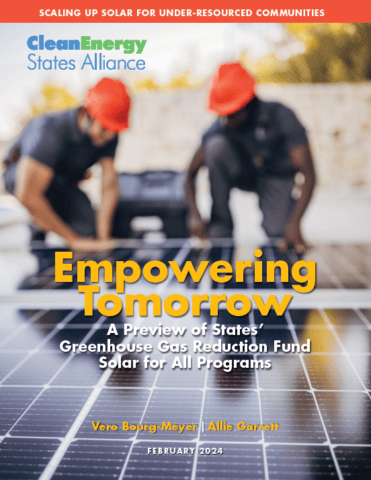Meaningful Household Savings: Best Practices for Achieving Equitable Solar Development
This report compiles research on best practices for designing solar programs that provide meaningful benefits to low-and-moderate income households. The report examines different types of solar projects, including residential-serving community solar, rooftop solar, and installations serving multifamily affordable housing. It includes six case studies and information about savings verification.
Read more...Energy Storage Program Design for Peak Demand Reduction
This issue brief, released by Clean Energy Group and CESA, outlines best practices and lessons learned for state policymakers and regulators engaged in developing energy storage peak demand reduction programs. The brief explores key elements of program design, such as incentive mechanisms and dispatch methods, as well as considerations for incentivizing load reduction versus power export, and peak demand reduction versus emission reduction.
Read more...Bridging the Gap: How Emerging State Policies are Making Energy Storage Affordable and Accessible
This report from CESA and Sandia National Labs compiles the results of independent research, providing a summary of emerging affordability and accessibility approaches in leading state energy storage programs. It is intended as a reference material that can be used in state energy storage policymaking across diverse geographical and regulatory jurisdictions.
Read more...Best Practices for Equitable Stakeholder Engagement in State Solar Programs
This document seeks to help state government officials create and/or expand their processes for equitably engaging with communities when developing and deploying solar programs.
Read more...US Community-Based Organizations and Solar: A Series of Reports
CESA has released a series of reports based on the findings of a nationwide survey of community-based organizations (CBOs). The survey, which included dozens of questions, yielded rich, nuanced information about the landscape of CBOs, their attitudes and experiences.
Read more...2024 State Leadership in Clean Energy Awards: Case Studies of Four Exemplary State Programs that Demonstrate the Benefits of Innovation, Inclusion, and Investment
This report is a series of case studies highlighting the four winners of the 2024 State Leadership in Clean Energy Awards.
Read more...Implementing Washington, DC’s Solar for All Program: An Example of Equitable Solar Outreach and Consumer Education
Washington, DC’s Solar for All program aims to benefit over 100,000 households with incomes at or below 80% of area median income. This case study profiles the program and the ways its administrators have handled outreach and consumer education over the program’s seven-year history.
Read more...Battery Storage for Fossil-Fueled Peaker Plant Replacement: A Maine Case Study
This analysis demonstrates that battery storage can cost effectively replace aging fossil-fueled peaker power plants in New England.
Read more...Energy Storage Incentive Rate Setting for States
This issue brief provides recommendations and guidance on incentive rate-setting for states seeking to develop distributed (behind-the-meter) energy storage incentive programs. It is intended to help states decide how to structure incentive programs and how to set incentive rates.
Read more...Empowering Tomorrow: A Preview of States’ Greenhouse Gas Reduction Fund Solar for All Programs
This report summarizes trends and calculates the potential impact of the EPA’s $7 billion Solar for All competition. The report provides the first public look into the range of state proposals that have been submitted in response to this competition. It can serve as a market readiness tool, to help states prepare for a massive and historic influx of LMI solar funding.
Read more...









